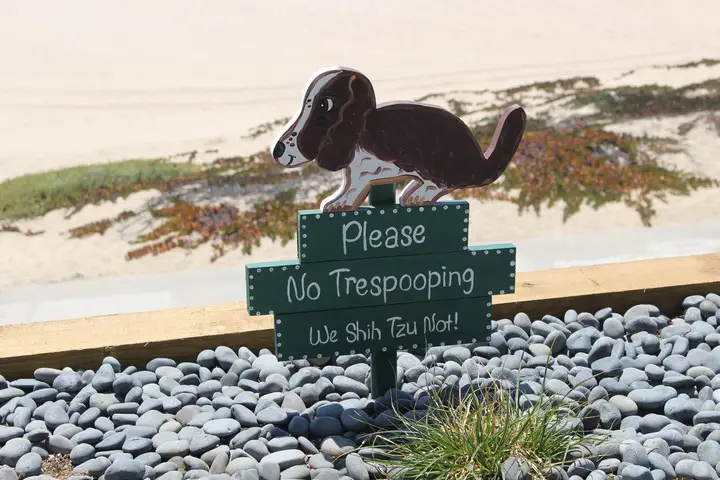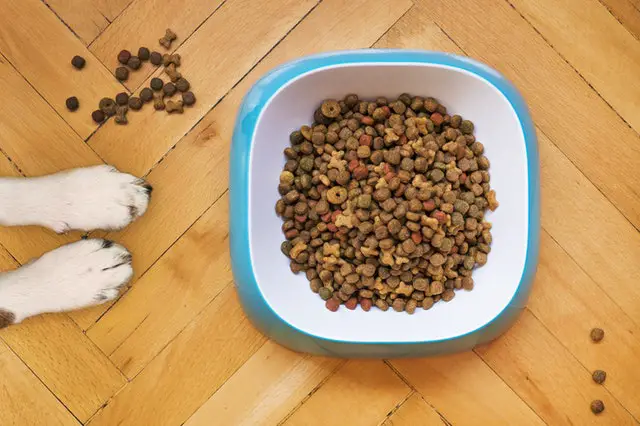Like humans, dogs can get upset stomachs from time to time. It’s not surprising because canines put almost everything in their mouths – from the delicious food to your shoes and the garbage you just threw. This can lead to diarrhea or loose stools, which can be life-threatening in some cases. If your pet is dealing with this condition, we discussed here how to treat loose stool in dogs to help you out.
Take note that the points and advice discussed here are only based on the experience of various pet owners. If your dog has severe diarrhea, we highly recommend that you contact the vet for proper treatment.
What causes loose stools in dogs?
Proper treatment for loose stools in dogs starts by identifying what’s causing it in the first place. Below are some of the potential reasons why your dog has diarrhea:

- Eating spoiled food. Food that’s been left on your dog’s bowl overnight is enough to trigger diarrhea. This is due to bacterial contamination and spoilage, especially if the canine has a sensitive tummy.
- Anxiety and stress. Even anxiety and stress can also lead to loose stools in dogs. Stressful response leads to speed up intestinal emptying, thus diarrhea.
- Intestinal parasites. Intestinal worms are one of the most common causes of loose stools in dogs. When the parasites upset the canine’s digestive system, the dog’s body will try to expel it out. This is in the form of loose stool or diarrhea.
- Ingestion of foreign objects. The likes of toys, household items, and other inedible things can also lead to loose stools. Since it’s not meant to be ingested, the item will trigger stomach upset.
- Poisoning. Diarrhea is one of the tell-tale signs of poisoning among dogs. It’s the body’s way of trying to expel the toxic substance.
- Viral infections. Parvovirus and distemper always cause loose stools. Take note that these viral infections are life-threatening for dogs and must be treated as soon as possible.
- Inflammatory bowel disease. IBS or inflammatory bowel disease causes bouts of constipation and diarrhea among canines. Other symptoms include vomiting, bloating, and lack of appetite.
When to go to the vet
Although diarrhea is common, you should always consider it as a serious matter. Continuous diarrhea can dehydrate your dog fast, which can lead to fatal consequences.
If your dog’s loose stools or diarrhea isn’t improving within 12 to 16 hours, it’s best to bring your dog to the vet.
The veterinarian will put your dog on IV medication to help stop whatever’s triggering loose stools. Also, the goal is to replenish the lost fluids from your pet’s body to combat the life-threatening risk of dehydration.
Also, if you’re not comfortable providing home remedies to your dog, the vet is the best person to consult.
How to treat loose stool in dogs: dos and don’ts
Loose stools in dogs are fairly easy to treat as long as it’s not a symptom of a serious underlying problem. For mild to moderate cases of diarrhea, here are some home remedies you can try:
🐶Don’t feed your dog with solid food.

The moment you discover your dog’s loose stool, it’s best to put him on fasting. This is to allow your pet’s digestive system to take its natural course of expelling whatever irritant is inside.
Also, by depriving your dog of food for 12 to 24 hours, you’re not putting too much strain on its stomach.
Aside from that, putting your dog on fasting will help you assess if the food is the cause of loose stools. This is usually the case for canines with intolerances and allergies.
Don’t worry because your dog won’t die just because it didn’t eat for a day. However, you have to ensure that your pooch drinks enough water. This is to combat fluid loss due to loose stool or diarrhea.
🐶Keep your dog hydrated.
When your dog is experiencing diarrhea, it’s crucial to increase its fluid intake. This is to fight potential dehydration since loose stools flush out a lot of water from your dog’s system.
Aside from plain water, you can encourage your dog to drink by giving unsalted broth. Broth provides hydration while packing a punch of minerals. This will help regain your pet’s strength in case it’s dealing with a debilitating bout of diarrhea.
🐶Serve canned pumpkin
Another way to ease your dog’s loose stool is to give canned pumpkin. Make sure that you’re serving one that’s free from any flavorings or salts.
Moreover, you should only serve one teaspoon at a time. This will prevent the canned pumpkin from being wasted.
However, if your dog’s loose stool is due to excessive fiber intake, you shouldn’t give canned pumpkin. Instead, you can try tossing small slices of boiled chicken.
🐶Give plain yogurt
Probiotics help a lot in resetting your dog’s upset stomach.
In this case, plain yogurt is the easiest way to give your dog a dose of good gut bacteria. As with canned pumpkin, you should give yogurt in small servings.
If your dog doesn’t like yogurt, you can give probiotic treats instead. These are tasty soft treats rich in nutrients that will help your dog bounce back from diarrhea.
🐶Introduce solid food back slowly
Once you’re seeing improvements in your dog’s condition, you can slowly introduce solid food. Start with cooked rice and boiled chicken without any flavoring.
If your dog’s loose stools cleared up within 24 hours, it’s safe to mix kibble with rice to keep its meals light. Once you’re sure that its digestion is back to normal, you can give your dog its usual diet.
🐶Never give human diarrhea medications to your dog.

While some human medications for diarrhea work for dogs, you should never try to administer them without the vet’s advice. In the long run, human medications can mess your canine’s digestive system even more.
Instead, you should consult your dog’s veterinarian about the best medication you can give your pooch. Aside from the choice of medication, it’s also important to ensure that your pet is getting the right dosage.
🐶Don’t wait too long
Most importantly, you shouldn’t wait too long if your dog has loose stools or diarrhea. Loose stools mean that your pet is losing more and more fluids by the hour.
Don’t hesitate to call the veterinarian if your pet isn’t showing any progress. The faster you act, the better when it comes to your dog’s welfare.
How to prevent loose stools in your dog
The occurrence of loose stools or diarrhea in dogs is very common. Still, it’s highly preventable since most causes are external.
With that, here are some of the precautionary measures you can take:
✔️Invest in premium dog food
Subpar dog food products often use low-quality ingredients that will compromise your pet’s digestive system. Whether your dog has a history of diarrhea or not, you should still feed it with a healthy and balanced diet. You should also consider getting dog food with probiotics to promote better digestion.
If you’re planning to transition your dog to a raw diet, you should consult the vet first. A raw diet isn’t for every dog, and it’s also an expensive and demanding choice in terms of preparation.
You should also consult the vet if you’re planning to switch your dog to a new food product. Changes like this must be performed slowly to prevent upsetting your dog’s tummy even more.
✔️Cover your garbage bins
Being well-fed won’t stop your dog from dumpster diving. And in the process of doing so, your pooch will ingest spoiled food and other toxic substances that will trigger diarrhea. This is why you have to keep all your garbage cans covered and sealed away from your pet’s wandering nose.
If you’re planning to dispose of your leftovers, make sure that it’s sealed inside a double bag. You can also toss meat leftovers to the garbage disposal, so your dog won’t get any chance to scavenge on it.
✔️Know your dog’s dietary indiscretions
Each dog is unique, and so is its digestive system. You must know what your dog can and can’t eat. This will greatly help you avoid any food ingredient that could cause diarrhea on your pet.
Dietary indiscretions will usually show up as your pup grows. Still, it’s best to get your dog checked at the vet’s clinic if you suspect that your pet has food allergies or intolerances.
Take note that intolerances and allergies in dogs won’t go away by continuously exposing the animal to the trigger. In fact, the sensitivity would become worse, and your dog will continuously suffer from loose stools.
✔️Deworm your dog regularly
Since intestinal worms are also culprits to loose stools, deworming periodically is necessary. Aside from preventing diarrhea, deworming will also save your dog from malnutrition and other complications.
Generally, veterinarians recommend deworming dogs every three months. This is to achieve optimal protection all year round.
You have the option to deworm your dog at home using a vet-prescribed deworming drug. Make sure that you follow the recommended dosage for safe results.
✔️Schedule regular vet checks
Dogs need to see the vet at least once a year for annual checks. Even though your dog doesn’t appear to be sick, this annual check-up will help identify potential health problems before it gets worse.
Also, if your pet experiences recurring bouts of diarrhea throughout the year, you have to get the pooch checked for health problems.
Frequently Asked Questions
Q: Why does my dog get diarrhea every few days?
A: Recurring diarrhea can be a sign that your dog has dietary indiscretion. It’s possible that your dog is allergic or intolerant to a specific food ingredient. Also, you shouldn’t discount the possibility that your dog is exposed to bacteria like Salmonella and E. coli. Viral infections can also trigger on and off diarrhea among canines.
Q: Does overfeeding a dog cause loose stools?
A: Many pet owners don’t know that overnutrition, or excessive feeding, can also lead to diarrhea. This is why you should always practice proper portion control to ensure that your pet gets just the right nourishment.
Q: How many times should a dog poop?
A: In general, canines need to poop one to five times a day, depending on their diet and activity level. As long as your dog’s stool is firm and has a healthy brown color, frequent pooping is unlikely to be a cause of concern. However, if other symptoms accompany frequent defecation, you shouldn’t hesitate to call your dog’s veterinarian.
Q: What should my dog’s poop color be?
A: In dogs, a healthy poop color will be brown. However, it will have darker or greenish poop in some cases, especially if they ate vegetables or have been under specific medications. You can refer to this dog poop color list to know if your pet’s feces have a normal consistency and appearance.
Q: What is considered loose stool in dogs?
A: Loose stool has a watery and extremely soft consistency. Most of the time, it’s also accompanied by an intense foul odor and an abnormal color. When your dog has this poop, you should provide home remedies right away. If the dog’s condition doesn’t improve, you should call the vet immediately.
Q: How long after a meal will a dog poop?
A: A dog will usually defecate about 30 minutes after a full meal. Still, each dog is different, and so is its metabolism. If your dog didn’t defecate during the day despite heavy meals, it’s worth calling the vet. While this may just be a typical case of constipation, it can also point to other health problems.
Final words
The ways how to treat loose stool in dogs should be on every pet owner’s guidebook. Since diarrhea or loose stools are common among dogs, it’s crucial for every owner to have knowledge on how to address the problem. When in doubt, it’s always best to consult your dog’s veterinarian about the best solution. Remember to act fast as loose stools can lead to a life-threatening case of dehydration.

